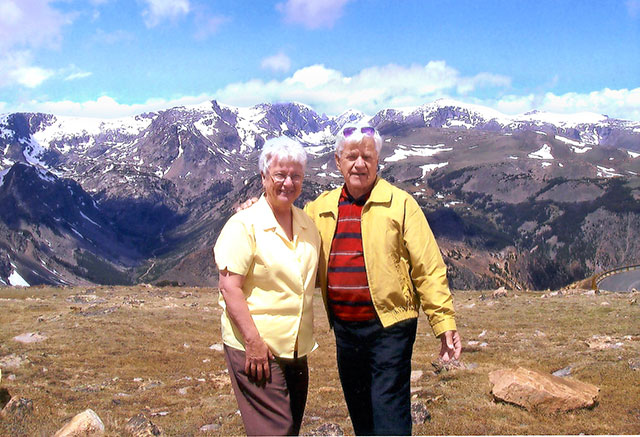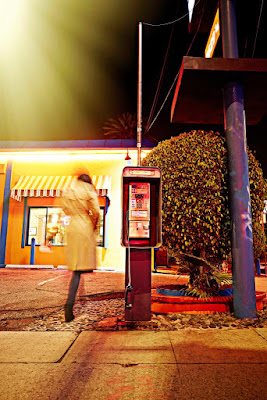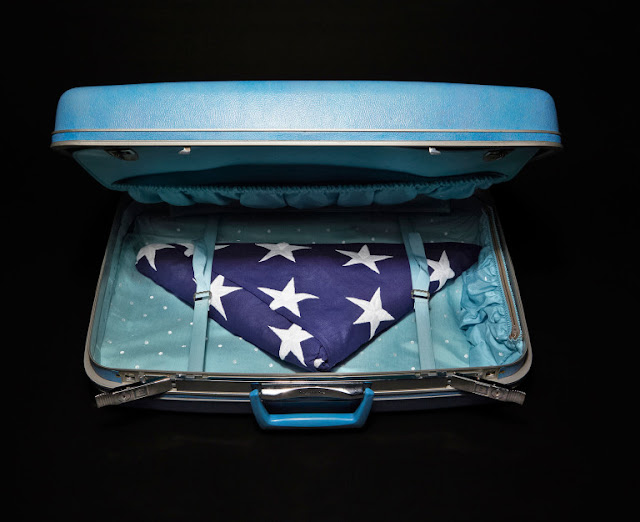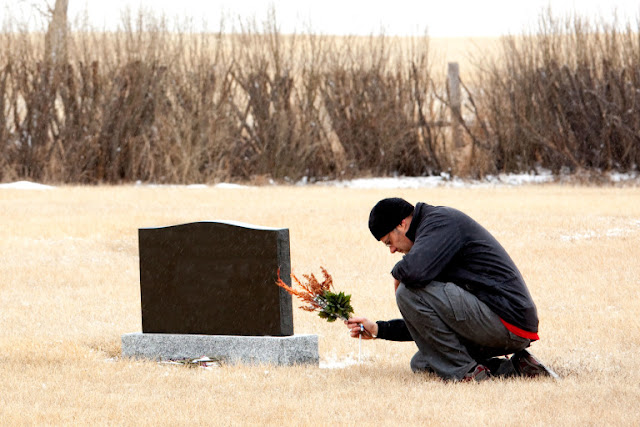In this true tale from the Moth, America's premier storytelling group, a man explains a grave predicament he encountered abroad.
Last summer, after 16 years in the United States, I traveled to the city in Russia where I grew up. I was the first in my family to return after all those years. My mom gave me a hand-drawn map showing the location of my grandfather’s grave at the local cemetery, and she asked me to visit it.
When I was leaving, she asked me again.
“Are you going to go there?”
“Yes.”
“Promise?”
“Promise.”
It was really important to her that I go there. My grandfather died when I was little, and she wanted me to remember him. She would tell me stories about him. He was still very much alive in her mind, and she wanted him to continue to live in my mind as well.
But I was just too little when it all happened, so I didn’t remember much. I thought maybe this visit to his grave would make up for what she thought was her failure at keeping his memory alive.
So I promised that the first thing I’d do when I arrived would be to visit the cemetery. Well, the first thing I did when I got there was to locate my high school girlfriend.
And I got caught up in work, and I had a lot of catching up to do with my childhood friends. So it wasn’t until a day before I was leaving that I found time to go to the cemetery.
It was late in the afternoon, and right by the entrance was a lady who was selling flowers. By then she had only seven carnations left in her bucket. I bought them all, but when I reached for my wallet, I realized I didn’t have the map with me. I had no idea what had happened to that map. And I had no idea where my grandfather’s grave was located.
I could call my mom and ask her. There was a pay phone right there, and I still had ten or 15 minutes left on my calling card, and it was already morning in New York.
But the problem was that I had already told her I’d gone to the cemetery. What was I going to say? That I decided to go again but lost the map? She knows whom she’s dealing with. She’d see right through me.
So I found the main office. It actually occupied a family mausoleum. I figured some affluent family must have commissioned it but then had immigrated to the United States, and the management took advantage of the situation and moved right in.
Fortunately it was open, and inside was a small office filled with file cabinets. It looked like a financial aid office at some community college. Behind the counter was an old woman, and she said she’d help me locate my grandfather’s records.
A couple of minutes later, she came back with a printout. I was going to reach for it, but she said, “No, no; let me see it first. It’s five dollars per grave.”
I said, “Well, is there more than one?”
“Yes. There’s always more than one.”
It turned out there were 17 Abraham Pikarskis on the list. I paid for the two whose age I believed closely matched my grandfather’s.
I set off to look for them. I hoped that at least one would have a portrait on the tombstone. It is the custom with Russian immigrants here in New York to put portraits on tombstones. This way I’d know which grave was mine.
I found the first grave and it said Abraham Pikarski on it, but there was no portrait. Only an inscription: From the Loving Wife and Children.
I had no idea whether this was the right one, so I went off to look for the other one. I found it, too, and it was virtually indistinguishable from the first one. Even the granite was the same color. It said Abraham Pikarski, no portrait. The inscription was slightly different. It said: From the Grieving Family.
I had no idea what to do. Was my family the loving one or the grieving one? I was standing there waiting, thinking maybe some sort of special feeling would come to me. Maybe I’d feel some sort of kinship with the person who was lying there.
I tried to remember all I knew about my grandfather. He was a locksmith. He was a father of three. He was a soccer fan. He died of a heart attack.
I put three carnations on that grave, and I went back to the first one. I stood there, too, for a while, and again I was hoping that I’d feel something special. But it was getting late, and I remembered that I had yet to pack for the trip back to New York, so I put three carnations on this grave.
I stood there with the last flower in my hand. Which Abraham Pikarski should it go to? Should I just discard it? Should I take a flower from another grave and make sure that each Abraham Pikarski got an equal number of flowers?
I had to come up with some sort of a formula.
Then, suddenly, I knew what to do. I put that flower on that same grave where I was standing. I thought if this is really my grandfather who is lying there, then all is well and good, and he got the most. But if not, then let this be a consolation to the stranger, because somebody else’s grandson came all the way from America to pay his respects.
I went back to the hotel and flew home to New York the next day. I never found that map again.
Mom and Dad picked me up at the airport. They have this thing about picking me up at airports. Really, I would have been home at least an hour sooner if it weren’t for them. First they couldn’t find the parking lot, then they went to look for me at the wrong terminal, then they lost each other. Finally I found them, and on the way home from the airport, my mom started crying.
I asked, “Mom, why are you crying? It’s only been a week.”
She said, “I’m just so happy that you took the time to visit your grandfather’s grave. It really means so much to me. You know when you called and told me you went there, I thought you were just saying it to make me feel good.”
When I was still in the air this morning, her second cousin who lives in Russia had called and told my mother that she had just come from the cemetery and had seen my flowers there. So my mom knew that I had really done this. And she stopped crying, and she was sitting there, and she was wiping her eyes.
And I thought: Should I ask her how many flowers her second cousin saw? Three or four?
But then I decided that maybe I should not say anything at all.
Reader’s Digest is proud to partner with the Moth on storytelling “Grand Slam” events in many cities across the country, with the best stories appearing in the July/August issue of RD.






